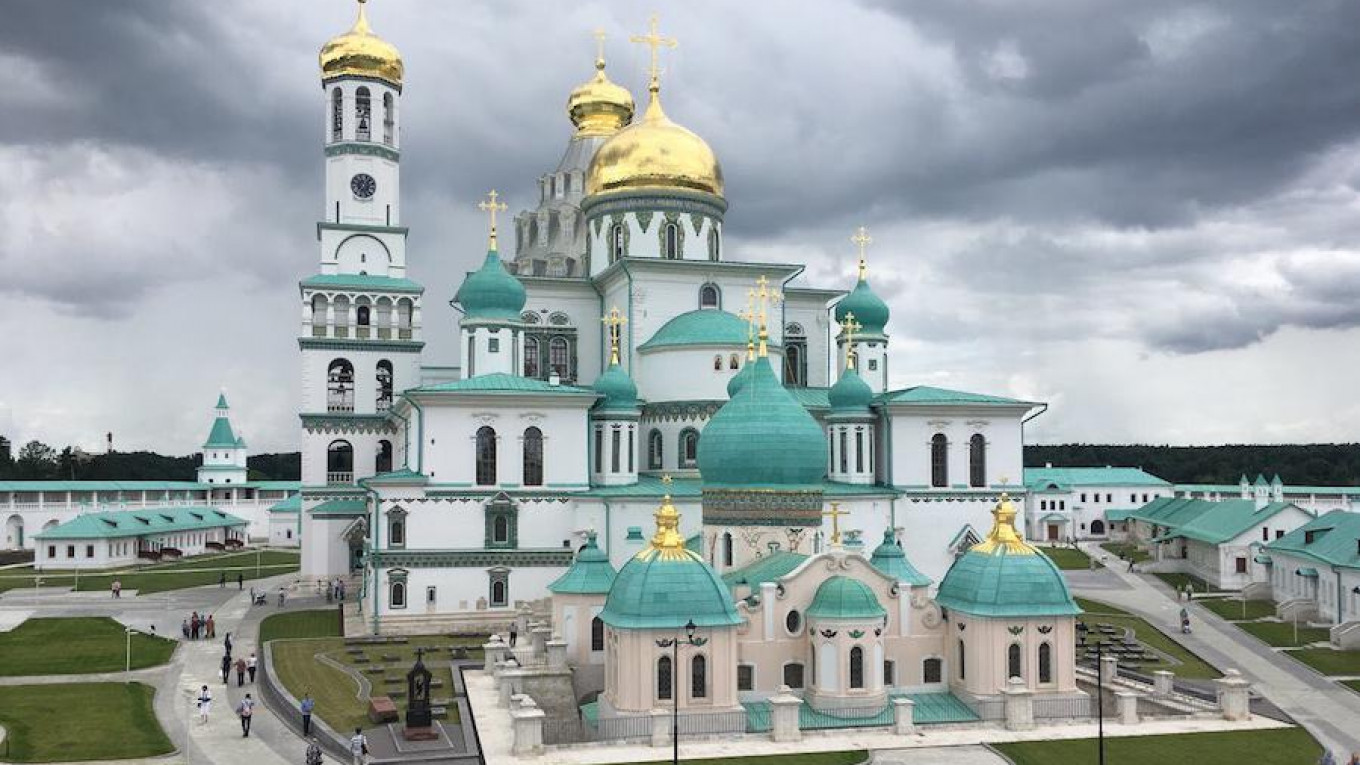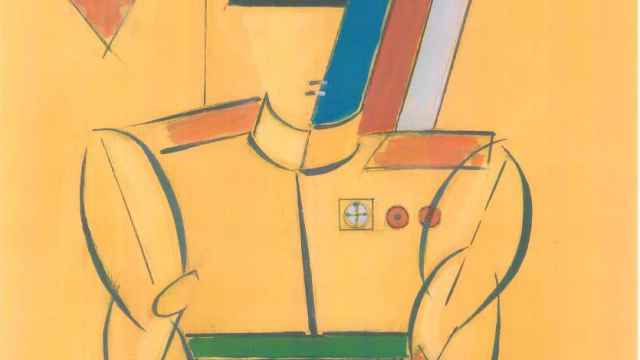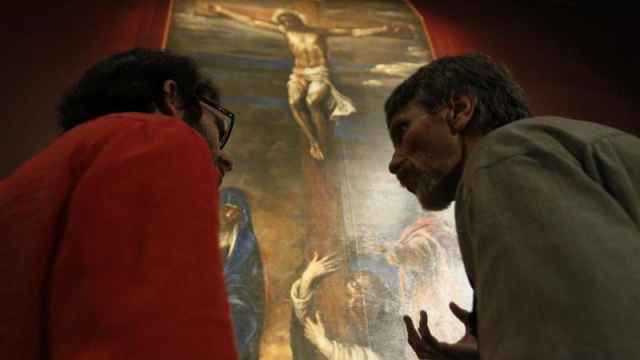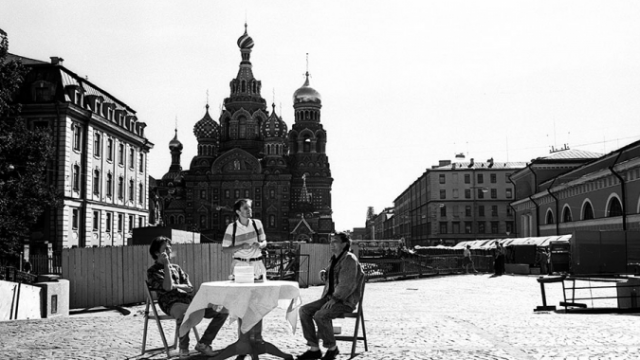If you’re looking to escape the endless roar of Moscow for a glimpse of the Russian countryside and fresh air, the town of Istra might be the place for you. Less touristy than Suzdal or Sergiev Posad, Istra is home to one of Russia’s most beautiful and important monasteries, and a place where Russia’s writers and artists found inspiration.
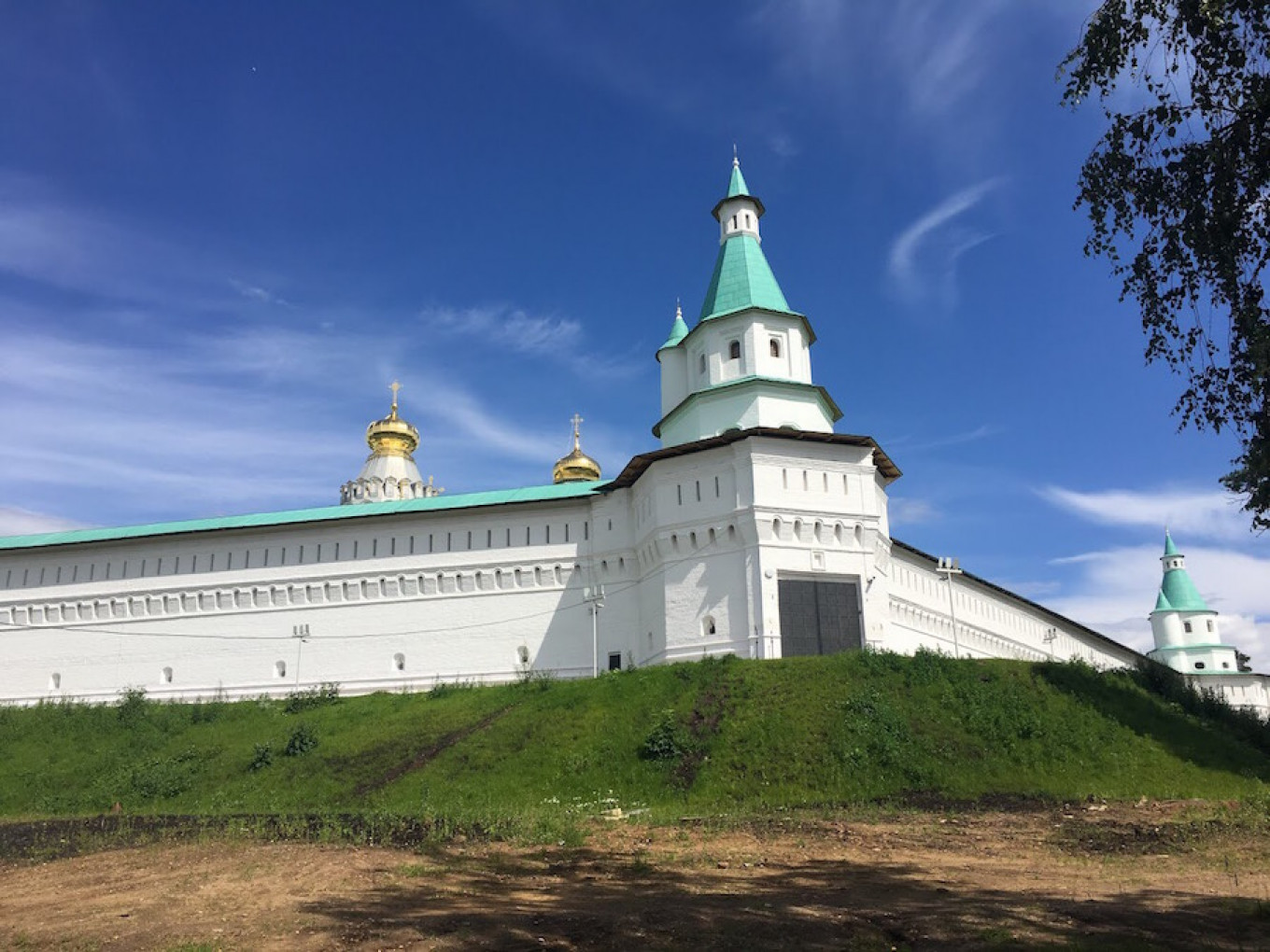
New Jerusalem
Most visitors come to see the town’s white-walled 17th century monastery. It was built by Patriarch Nikon as Russia’s New Jerusalem on the banks of the Istra River, here called the Jordan River, with a park called Gethsemane. Once a thriving religious center, it was closed by the Soviet government in 1918 and then pillaged and nearly completely destroyed by the Nazis during the Great Patriotic War. For decades the monastery lay in ruins, but it has been undergoing a massive renovation in recent years. Now almost completely restored, the monastery is a Russian cultural and architectural triumph rarely seen by foreign visitors.
The monastery has many churches and buildings open to the public. The most impressive church is the enormous Cathedral of the Resurrection, which was meant to be a copy of the Church of the Holy Sepulcher in Jerusalem. Inside your eye will be drawn up to the richly ornamented dome, lit with dozens of narrow windows.
Next to it is the unconventional underground Church of Saints Konstantin and Yelena, built to imitate its Jerusalem counterpart, which was carved out of the walls of a cliff. Its baroque interior has been restored. The Church of John the Baptist is the final resting place of Patriarch Nikon, whose translation reforms brought about a schism in the Russian church that has never mended.
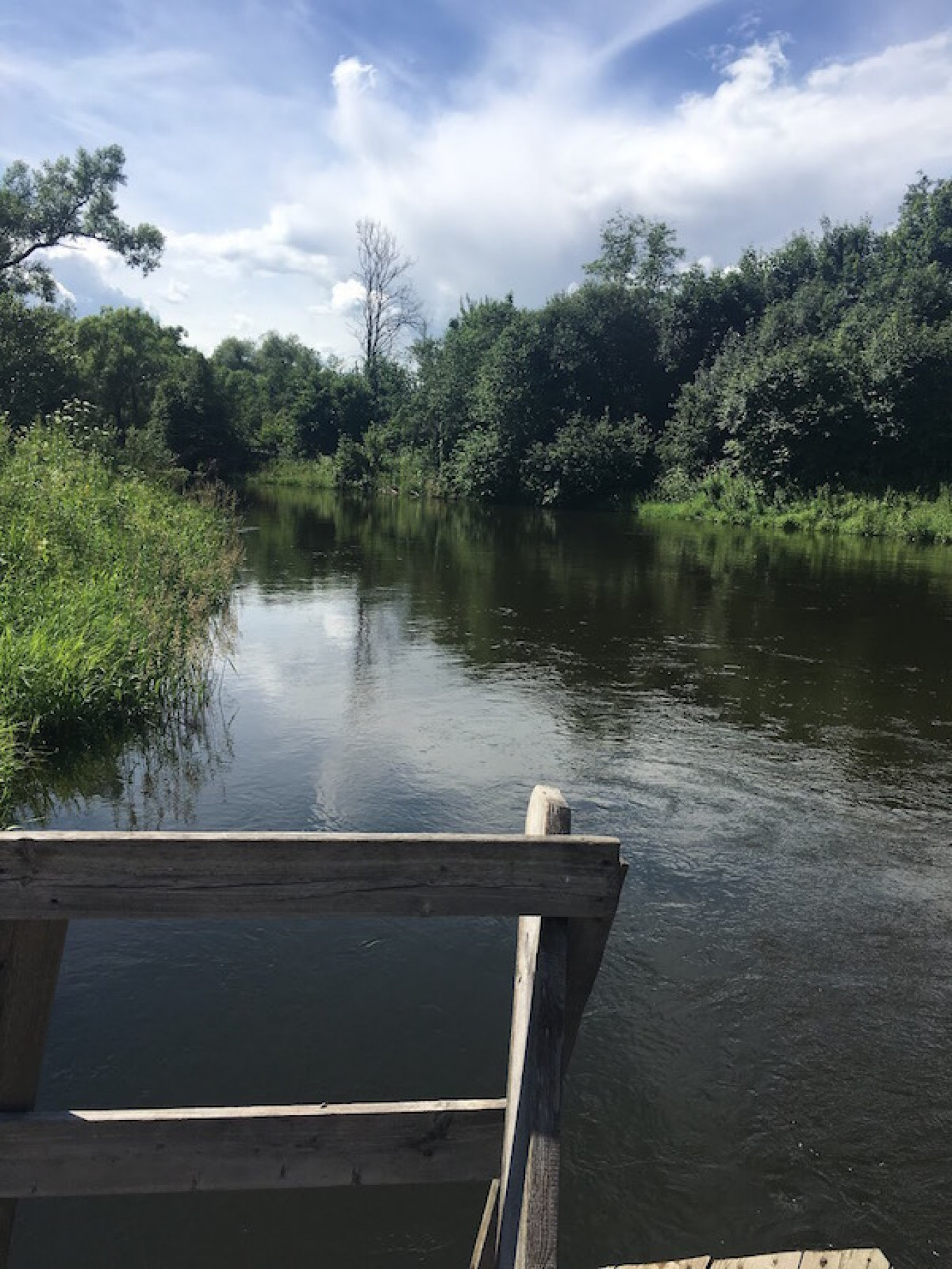
Park of Gethsemane
Outside the walls of the monastery is a lovely park with the Jordan River running through it. It was here that Nikon, the monastery's founder, lived out his days after a rift with the tsar in 1658. Nikon left Moscow to live in seclusion in a lovely 4-story skete (a place of isolation outside monastery walls). You can see the structure today across the narrow river, along with wooden architecture brought here from other sites nearby.
To complete your day, be sure to bring swim wear for a dip in the cool waters of the Jordan River. For an easy way into the water, look for docks that are marked with large wooden crosses. A swim in the water is considered to be spiritually refreshing, so this isn’t the place for frivolity or bikinis and speedos. But you can paddle about the water, take a walk, and relax on the river banks.
Admission to the monastery grounds and into the cathedral is free. There is, however, a strict dress code if you wish to enter the churches. Men and women are expected to dress conservatively, with arms and legs covered. Women are asked to wear a head scarf inside the churches.
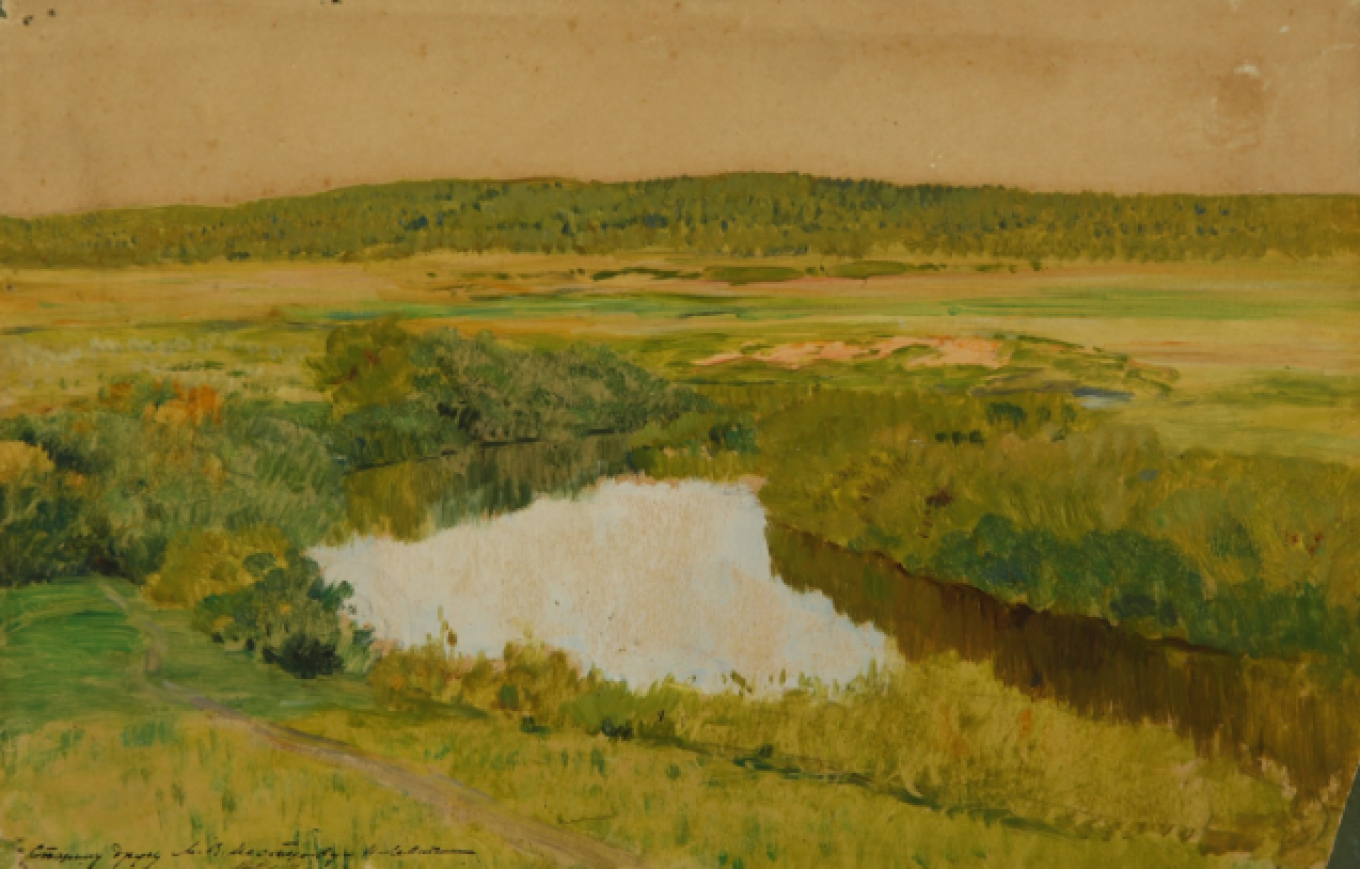
New Jerusalem Museum and Town
Istra’s second attraction is the very modern New Jerusalem Museum, built in 2013 to house a collection that was formed in the 1920s. If you enjoy art or are interested in Russian culture, this museum is a great place to view some of Russia’s finest artwork. The museum features a variety of Russian art from the early medieval period up to today. Currently there is a large exhibition of works by one of Russia’s finest landscape artists, Isaac Levitan. The 30 or so works from 14 Russian museums range from sketches to finished paintings, including many of the countryside around Istra.
At the end of your day, you might try one of the town’s cafes or restaurants. Istoriya is Istra’s fanciest eatery with a menu of upper-scale Russian cuisine served in halls decorated to represent various eras in Russian history. Less fancy is Staraya Meltnitsa, which serves Russian and European fare, as well as dishes from the Caucasus.
New Jerusalem Museum. 1 Ulitsa Novo-Ierusalimskaya Naberezhnaya. Open Tues. to Fri. 10 a.m. to 6 p.m., Sat. 10 a.m. to 8 p.m., closed Sunday and holidays. njerusalem.ru.
Istoriya. 9 9th Ulitsa Gvardeiskoi Divizii. Tel: 498 729 6982. Open daily noon to midnight. restoran.restoran-istoria.ru.
Staraya Melnitsa. 55 Ulitsa Panfilova, Bldg. 1. Tel: 964 550 5407. Open daily 10 a.m. to midnight.
Getting There and Back
The best way to get to Istra on public transportation is by the suburban train line at Rhizsky Station. Tickets for the suburban trains are sold in a building north of the main station and cost 350 rubles round trip. Tickets can only be bought at a ticket window; if your Russian is rudimentary, practice saying: “Istra, tuda i obratno” (round trip to Istra). Fortunately there is only one suburban line out of Rhizsky Station, so finding the right train is not a problem.
When you arrive in Istra, you can use a navigational system to take a 30-minute walk to the monastery and museum. For a bus, the stop is located in an open mall that is to your left when exiting the train station. Buses 4, 40, 46, and 48 all have stops near the monastery.
When you arrive back at the Istra train station, check the board for trains На Москву (to Moscow) and to Рижский Вокзал (to the Rizhsky Train station). Be careful: not all trains from Istra go to Moscow and the information online is out of date.
A Message from The Moscow Times:
Dear readers,
We are facing unprecedented challenges. Russia's Prosecutor General's Office has designated The Moscow Times as an "undesirable" organization, criminalizing our work and putting our staff at risk of prosecution. This follows our earlier unjust labeling as a "foreign agent."
These actions are direct attempts to silence independent journalism in Russia. The authorities claim our work "discredits the decisions of the Russian leadership." We see things differently: we strive to provide accurate, unbiased reporting on Russia.
We, the journalists of The Moscow Times, refuse to be silenced. But to continue our work, we need your help.
Your support, no matter how small, makes a world of difference. If you can, please support us monthly starting from just $2. It's quick to set up, and every contribution makes a significant impact.
By supporting The Moscow Times, you're defending open, independent journalism in the face of repression. Thank you for standing with us.
Remind me later.


